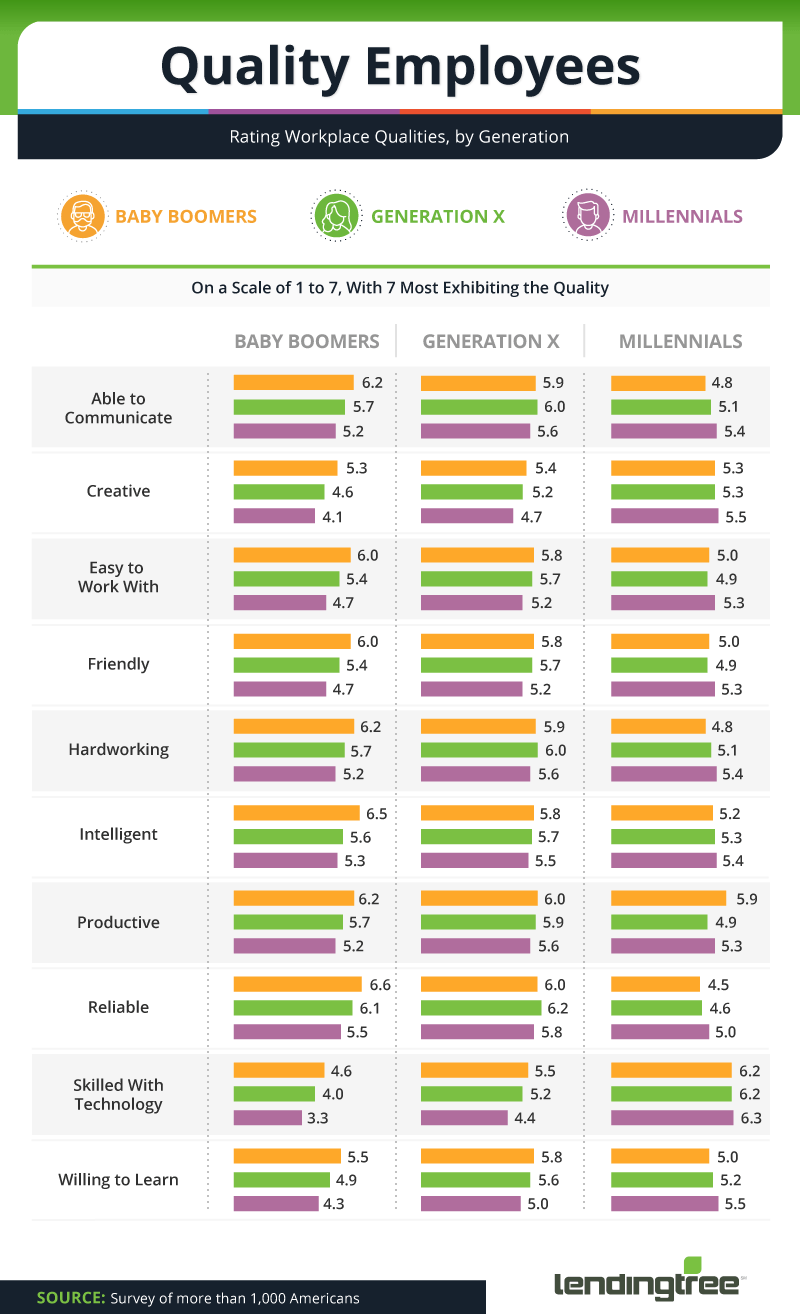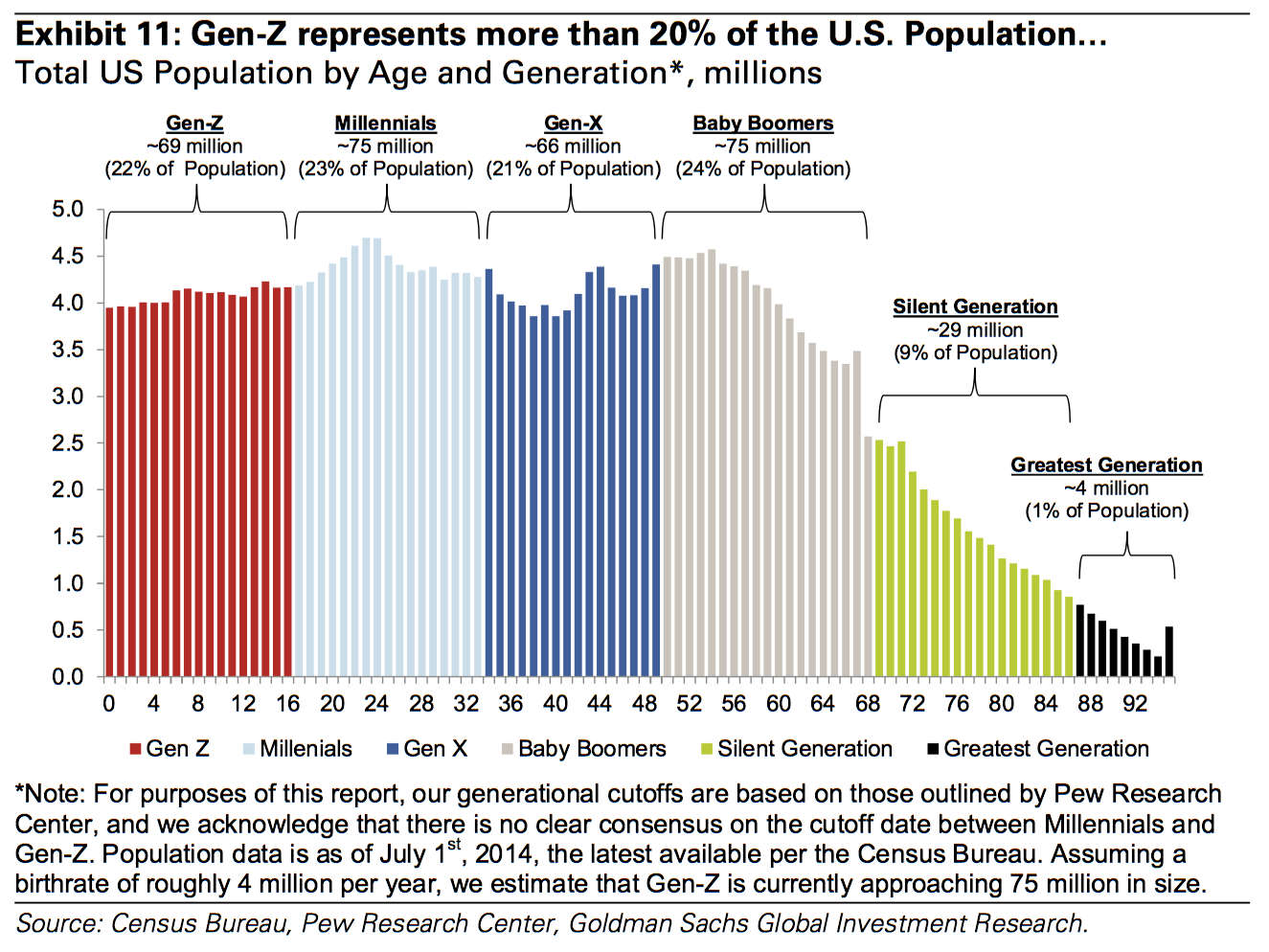Millennials are the best. And so are Baby Boomers
Quick and amusing take for a 'Freezing to Death Friday' in Western New York.
Take a look at the below chart, courtesy of Lendingtree.com survey of 1,000 US workers on perceptions of co-workers spanning three generations at work - Millennnials, Gen Xers, and Baby Boomers. Each person was asked to rate co-workers of the three generations, including their own, across a set of workplace qualities.
Here's the chart - think about what stands out as you scan these generational ratings:
Did you catch a theme in these ratings that each generation gave to their own generation, as well as the others across these various qualities?
In case it got lost in all the numbers and colors and bars what stands out to me is this:
Across EVERY category, Baby Boomers rated their own generation, (the other Boomers), higher than their Gen X and Millennial counterparts. Every single quality. Including, I might add, 'Skilled with Technology'.
And the Millennials?
They rated themselves the 'best' generation on every single workplace quality but one - Productivity.
And Gen X?
They mostly flip-flopped between ranking themselves and the Boomers the highest across these workplace qualities. And also for some reason, they rated Boomers the best at 'Skilled with Technology'. Maybe Gen X is still kissing up to the Boomers in charge, I am not sure.
What does any of this mean? Probably not much. But I found it interesting (the only criteria for inclusion on the blog), and kind of funny too. It turns out that for the most part, at least according to this data, we all think that people in our own generation are the best. I suppose that isn't too surprising.
Now get off my lawn. And have a great weekend. And try to stay warm!

 Steve
Steve



